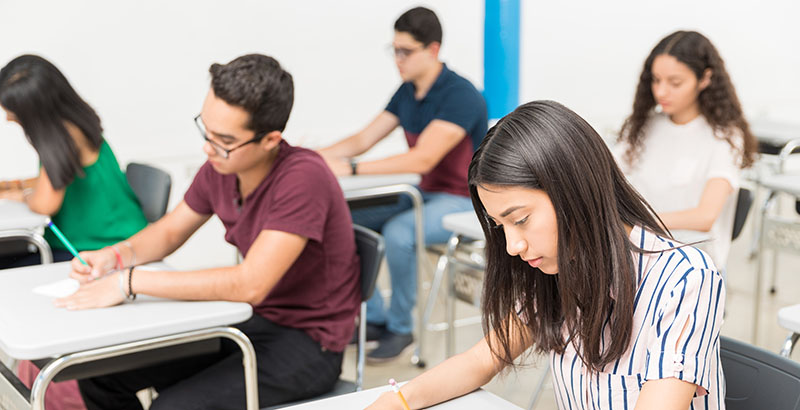Robin Lake: Flattening the Learning Loss Curve When School Reopens Will Take Federal Leadership, State and Local Buy-in and These 4 Steps

With schools across the country closed by the coronavirus pandemic, the U.S. education system must brace for a contagion of its own. Currently, there’s no plan to prevent what could be long-lasting academic casualties.
Districts and even entire states have expressed little urgency in resuming instruction, let alone preparing for newer and greater challenges. Large urban districts, which serve the majority of economically disadvantaged children of color, are unprepared to provide rigorous and effective remote learning.
This is not so for kids in private schools and high-flying suburban districts, where schools are fully online and students are expected to finish the year’s coursework.
As a result, city children will fall further behind. When schools do reopen, students will face learning gaps that may not be closed for years. Elementary students may have lost 30 percent of their reading skills and have only half the math skills they should.
Most students arriving in sixth grade, a critical point in preparation for real math and science learning, won’t have the content or skills they need for grade-level courses. When low-income urban kids return to school, their families will still face housing and food security challenges. They’ll need to cope with deep and lasting trauma at a time when services will be strained. Some students with disabilities will have missed months of therapeutic services necessary for them to succeed academically.
For some students, half a year of lost schooling might not ever be recovered. This can affect their odds of graduating from high school or doing any college work and, thus, their lifetime incomes — often multiple years’ worth.
To comply with health guidelines, educators will almost certainly be forced to limit the number of students in classrooms. Many older teachers will fall into health-risk categories that prevent them from being in physical classrooms at all. Schools may have to close again if regional infections spike.
There is no way to buy our way out of this problem. The economic slowdown means bare-bones school budgets, increased class sizes and teacher layoffs. The recent federal stimulus bill will provide about $270 per pupil, not nearly enough to make up for state and local funding shortfalls.
Flattening the learning loss curve is possible. But we need a national mobilization, with federal funding and leadership behind it. Governors and state education chiefs will have to coordinate their efforts. The plan needs four parts:
1. Limit learning loss now. States must require all districts to have strategies in place to ensure that students have the essential content and skills to enter the next grade with minimal remediation. All district staff should be immediately deployed to bolster tutoring and supports around core competencies — the skills and content they need to progress to the next grade.
2. Do as much as possible to help kids catch up over the summer. Federal stimulus funds should go toward remediation coursework, intensive in-person tutoring for low-income students and compensatory special education services — assistance that districts could not provide this spring and must make up for.
3. Radically remediate and accelerate next year. Schools must prepare for academic triage. States and districts should prepare now to do large-scale diagnostic testing. Schools should plan to conduct intake assessments, teach across multiple grade levels and coordinate community partners to provide mental health supports.
4. Start planning for the next forced school closure. It will come. And next time, schools and districts will need to act quickly, not dither for months.
American families have more reason than ever to believe that education is critical to their future prosperity. But necessity must breed invention. Every parent will be relieved to have their kids back in school next year. But we have to face reality: Schooling cannot look the same when they return. If we fail, we put our students and our nation’s economic security at risk. The choices we make now matter.
Robin Lake is director of the Center on Reinventing Public Education at the University of Washington Bothell. You can find her on Twitter @RbnLake.
Get stories like these delivered straight to your inbox. Sign up for The 74 Newsletter

;)
